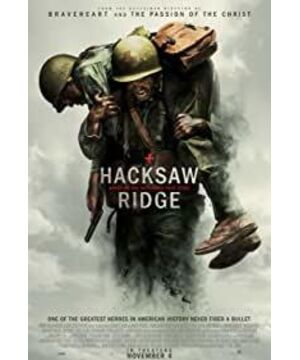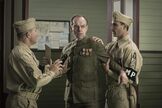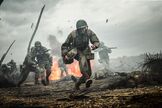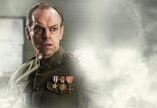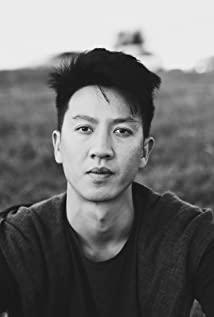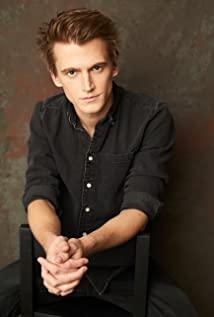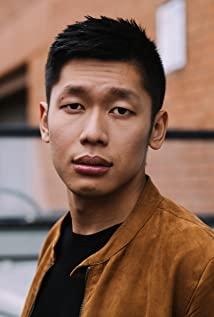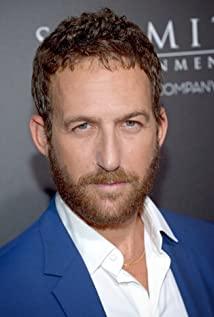After finishing brushing, I feel that I can say something, so let’s say something. To put it directly, Hacksaw Ridge is one of the two favorite new war drama movies I have seen this year, the other is 13 Hours, or it can be said that these are my two favorite new movies this year. The protagonist of Hacksaw Ridge is the combat medic. Desmond Doss was the first and only American soldier in World War II to receive the Congressional Medal of Honor as a CO (Conscientious Objector, for moral or religious reasons). , CO does not necessarily not enlist in the army, but not engaged in combat missions, can be engaged in army logistic paperwork, or be a medical soldier like Desmond, and on the front line battlefield wants to not take up weapons to kill, being a medical soldier is the only realistic possibility Way. The protagonist Cpl. Lawrence was also a CO. Originally worked as a clerical sergeant in the brigade command office, he was found to be the post-CO commander General Savage to talk to him and forcibly sent him to train as a machine gunner. Later, he witnessed the death of his friend on the plane. The awakening incarnation revenge fighter used a machine gun to blast off two enemy planes. This may be just a fictitious story, but it reflects two points: how would someone who joined the army as a Conscientious Objector be treated (even a humane leader like General Savage would not agree and accept Lawrence as a CO in the brigade The existence of, so we can understand the attitude of Captain Jack Glover towards Desmond in this film. His attitude is the most normal attitude. Even if a good company captain of Eugene in The Pacific encounters a subordinate like Desmond, what can he do? What about the reaction?); Conscientious Objector will basically give up actively or passively. It is too difficult to maintain such a principle on the battlefield of life and death. Desmond stayed on guard, not only in the barracks, but also on the Pacific battlefield. He is a young man in his 20s, kid or son in Sarge's mouth. This young man will use his own actions to change everyone around him. Company Commander Glover, Company Sergeant Commander, Smitty, and other comrades in arms. They will take the initiative to confess to him, "We misunderstood you", Desmond Doss is not. Coward, he is the bravest and most determined man among them. The Congressional Medal of Honor (Medal of Honor) is the supreme military honor of the United States. It is the highest medal of the US military. It is equivalent to the Victoria Cross of the British Army. In World War II, the US military only awarded 464 MoHs, of which 266 were dead. Posthumously, only a small half of those who are alive are honored. The figure of 266 does not include some awards that were not awarded at the time and later died in other battles, such as Baslon of USMC, who won MoH in Guadalcanal. The ceremony was held during the rest period in Melbourne, and was later sacrificed in the Battle of Iwo Jima; the RG of the 101st Airborne Division Lieutenant Colonel Cole won the MoH in the Battle of Normandy and died in the Battle of the Netherlands. Because he was on the front line, he never touched his medal until his death (the Overlord Operation has a quota of "one division and one chapter", and his award resulted in 506 regiments. Lieutenant Winters of the 2nd Battalion E Company was recommended to MoH but could only be demoted to DSC). The first Marine Division in the bloody Battle of Peleliu received 8 MoHs, of which five were posthumously awarded. It can be seen how difficult it is for MoH to obtain the highest honor in the entire army. Of course, top honor needs extreme bravery and great sacrifice! The U.S. Medal of Honor, like the Victoria Cross of the British Army, attaches great importance to commending soldiers for their bravery and rescue of fellow soldiers on the battlefield (secondary medals also value this). In modern warfare after World War II, especially after the Vietnam War, The number of Medals of Honor awarded is very small. Judging from these limited deeds, a large proportion of the recipients were awarded for the rescue behavior on the battlefield: two snipers in Somalia were awarded posthumously after their deaths in order to rescue the crashed black Survivors in the Eagle; 13 people in Afghanistan, three of them posthumously, including Michael Murphy (Murph the Protector), who sacrificed himself in Operation Red Wing and went to the uncovered area to make satellite calls to rescue his comrades; four people posthumously in Iraq , The first is to bravely block the enemy and cover the wounded to evacuate, and the other three use their bodies to block grenades to cover their comrades. A person who is honored for rescuing his fellow robes is the least picky. In the history of the British army, the entire army has only issued more than 1,000 VCs. The same person has obtained VCs twice, and only three people. Of these three people, two belong to the Medical Corps, and the other is also rescuing the wounded. I would like to specifically mention an Englishman who has a certain similarity with Desmond. The only one who won a VC twice during World War I, Captain Noel Chavasse, a military doctor, a graduate of Trinity College, University of Oxford, and a participant in the 1908 Olympics, He was awarded VC in the Battle of the Somme and the Battle of Parsendal. The second time he was awarded posthumously. He died of injuries on August 4, 1917. He was only 32 years old. Returning to the wounded, arriving at a short distance from the enemy trenches to find the wounded, and braving heavy fire to rush across the front. These actions mentioned in the Desmond awards order, he did nothing less. He was seriously injured by the shells. He was rarely able to get a rest. A silver lining. With Desmond, the medic Like Doss, this young military doctor showed extraordinary courage and total selflessness. They only have the wounded in their eyes, not themselves. Because MoH winners are often dead or about to die, there is no example of the same person getting MoH twice in World War II. Basilon was also brave in Iwo Jima, but only awarded the Navy Cross of the next level. In fact, there are many examples of rescue colleagues in the whole army, but the deeds of many people are not known to the public, and it is difficult to rescue so many people by one person like Desmond Doss. However, it is common for a soldier to sacrifice himself on the battlefield. When I read about these people's deeds while studying, I can't help but be moved and respected. For example, in the Battle of Peleliu, a 27-year-old Marine Corps infantry company commander, James Captain Shanley (graduated from Columbia University), several times rushed out of the bunker to rescue injured men exposed to enemy fire, and he was forced to kill by shooting shells. His deputy company, Lieutenant Collins, was hit by anti-tank artillery when he rushed out to rescue him. Killed in action. Captain Shanley was posthumously awarded the second naval cross for his bravery. He was awarded the naval cross at the Battle of Gloucester Point. When I saw his deeds, I really felt that commending MoH would not be an exaggeration, such a brave and benevolent young man. Mel’s filming of Desmond’s injury and withdrawal from the battlefield is already a simplification of the real situation. If he takes the photo without any modification, I don’t know if some viewers want to shout "Old beauty is sensational" or American emperor. The main theme of Wei Guangzheng heroes is a blockbuster movie or something. The actual situation is clearly written in his MoH award order: Desmond rescued the wounded until his leg was injured by a grenade, and was not immediately taken away as in the movie, nor did he call the medical soldiers behind the bunker to rescue him ( Doing so would endanger the lives of the medical soldiers), but he bandaged himself and waited for five hours until the stretcher soldiers found him and carried him away. On the way to safety, he was attacked by Japanese tanks. Seeing a wounded soldier with more serious injuries, he gave out the stretcher bed and ordered the stretcher to send the comrade away first. While waiting for the stretcher soldier to return, he was taken away by another comrade in arms. On the road, he was hit by a Japanese sniper and fractured his arm. After fixing his injured arm with a rifle as a splint, he crawled hundreds of yards back on the rugged ground. emergency medical Service station. He was wounded several times in the Battle of Okinawa, and Zixin took it three times. In the previous Battle of Guam, he was awarded a bronze star for rescuing the wounded and contracted tuberculosis on Wright Island. These injuries caused great damage to his body (not mentioned in the movie). The Medal of Honor is a commendation for the bravery of rescuing the wounded from April 29th to May 21st, 45th. He was exposed to enemy fire for several times but did not die. Perhaps it should really be thought that God guided and protected him, and he's the guardian angel to his buddies. Smitty, Company Commander Glover, and Company Sergeant Commander Sgt. Howell is the three most eye-catching characters in the supporting role. The second-level supporting role Kirzinski and Hollywood are also recognizable. When Japs counterattacked at dawn, only the company commander retreated. Kirzinski was killed, Smitty was killed, Sarge was injured in his leg, and Hollywood was injured in his leg and face to rescue him, and neither of them could escape. The 96th Division (the word in the theater was incorrectly translated as "96 Company", which should be the 96th Infantry Division, which was replaced by Desmond and Smitty's 77th Infantry Division on April 28, 45). Did not survive afterwards. Smitty Ryker, one of my favorite characters in the whole film, did not wait to see Desmond at first, and later protected him on the battlefield, rescued him, squatted through the same foxhole/bullet, and comrades in love with each other. I’m sorry...I’m still a child who has no father and was thrown into an orphanage by his mother when he was a child. Smitty hates Desmond because the kind of child who has tasted the hardships of life is compassionate, weak, can’t resist, and doesn’t understand. The natural disgust of the sinister good children in the world, of course, later learned that Desmond is not as simple and weak as the surface, but has a strong heart, and is not a child grown up in a happy and harmonious family. The more surprised and acquainted with Desmond, the more he paid attention to Desmond. At the beginning, he provoked Desmond and asked him if he was a coward. At night, his roommates beat Desmond in groups, and he was the one who stopped him immediately, and then went to the battlefield. Mutual assistance and rescue. On the battlefield, Smitty was resolute, brave and calm, very eye-catching, like a tried and tested veteran. Even if he was seriously injured, his reaction was calm and fearless, but when Desmond ran to rescue him, he said "I' ), they had been fighting for a few days before the main U.S. force's landing operation on Okinawa was launched on April 1. It's just that the focus and length of the movie have erased these. So the question is that the protagonist lineup is still so complete when we hit Okinawa? Two: The company chain of command is incomplete. Desmond's 307th Regiment 1st Battalion B Company command level only has two company commanders and company sergeant commanders (Sarge judges that he should be 1st Sergeant under normal circumstances according to the company commander and the company commander), and the entire officer level. No, the company and the platoon organization structure do not exist. Except for the captain and company commander, there seems to be no officer in sight, only Desmond's PFC. K/3/5 is handled similarly in The Pacific, with company commander, machine gun platoon leader and Gunny as representatives. Of course, this is all nitpicking in my idealized state. After all, it’s only a two-hour-long film, and it’s not a TV series. I have to confess the protagonist’s teenage years, love and marriage, and I have to omit the first few battles to highlight Okinawa’s medals of honor. For the battle, the organization structure of the army is omitted, which is not the focus of this film. One of the themes like Generation Kill is a TV series about relationships in the military, but I can talk about it well. Seeing that some friends think that this film is attributed to faith and is a bit preaching, I feel that there is no strong exaggeration or promotion of faith in the film. Only on the cliff Desmond asks God the sentence "What do you want me to do, I can't hear you." "After that, I heard the voices of comrades calling for help, and the end of the film gave Desmond, who was seriously injured and slid down on a stretcher along the rope, a perspective from upside down. There is a sense of holy light that soars upwards (he was originally a guardian angel). It is understandable to give such a lens). The whole film is not so much attributable to faith as it is to family tragedy, which is war tragedy. His veteran father’s PTSD left behind during World War I never recovered made him unable to fulfill his duties as a good father and a good husband. During the conflict, the son nearly shot his father with a pistol. He told Smitty in the crater so he decided not to carry a gun. Although he had never personally experienced a war before actually setting foot on the Pacific battlefield, he had already deeply experienced the tragic and destructive nature of the killing nature of the war. In the brawl, Desmond missed his hand and almost killed Hal with a brick. It was also because of his father’s indifference and Hal’s phrase "I hate him!" Father Thomas. Doss became a man with broken heart because of the trauma of war. Desmond realized that killing cannot solve the fundamental problem. It will only deepen hatred and damage. All people involved are victims, whether they are victors or not, as His father, who lost his comrade-in-arms in France, survived alone, unable to face the life after the war, and dragged the family into a miserable situation. Perhaps because of this, Desmond decided that he should be a rescuer, not a killer. Saving is better than killing, anyway. In the aforementioned 12 O'Clock High, Cpl. Lawrence also became a Conscientious Objector because of a family tragedy. His father died on the day of the armistice of World War I, in the war to end wars. Very ironic. The First World War did not end, and the Second World War broke out again 21 years later. These young people who have suffered from the suffering caused by the First World War, apart from seeing the absurdity and destructive nature of the war, do not see the positive meaning. They want them to continue to imitate their fathers and take up arms to fight, and then give them to their next generation. The pain is left behind, which is unacceptable to them. In his conversation with Lawrence, General Savage said to him, "Giving up does not work" ("Men of goodwill had learned one thing since 1939, giving up doesn't work. 11 Supplement: I accompanied a friend to see a show today, and completed my three brushes. Brush Hacksaw three times, and watch Smitty die three times... I briefly scanned the history of the 77th Division in World War II, and found that they had cooperated with the First Marine Division during the Okinawa phase. Ah, thinking of Eugene in TP, I felt a kind of intimacy. Gone spontaneously. In fact, after the three brushes came out, I told my friends that I saw Desmond and his friends fighting hard in Hacksaw Ridge. Think about the Eugenes of the First Marine Division who are also suffering on the Okinawa battlefield at this moment. Audiences who have watched The Pacific remember that Eugene lost his father-and-brother company commander at Peleliu, and his spiritual pillar collapsed. He was twisted during the Battle of Okinawa and became cold and belligerent. "I hope they don’t surrender, I hope we Can kill them all." He said. War is hell! Surviving from the battlefield does not only mean surviving the body. If a person survives but the spirit collapses, it is no different from a walking dead, not a survivor. During the Battle of Okinawa, there were 26,000 non-combat attritions caused by mental problems in the US military. During the Second World War of the 77th Division (Guam, Wright Island, and Okinawa), a total of six people won the Medal of Honor. In the Battle of Okinawa, they replaced the 96th Division in World War II (Wright Island, Okinawa). A total of five people were awarded Medal of Honor. Four of them were awarded in the Battle of Okinawa and three of the five were posthumously awarded. Salute to all the heroes buried over there. About Conscientious Objector: If you are interested, you can look at the wiki entry of Conscientious Objector. It is actually a long-standing issue and a very broad concept. 000 people. During the Second World War of the 77th Division (Guam, Wright Island, and Okinawa), a total of six people won the Medal of Honor. In the Battle of Okinawa, they replaced the 96th Division in World War II (Wright Island, Okinawa). A total of five people were awarded Medal of Honor. Four of them were awarded in the Battle of Okinawa and three of the five were posthumously awarded. Salute to all the heroes buried over there. About Conscientious Objector: If you are interested, you can look at the wiki entry of Conscientious Objector. It is actually a long-standing issue and a very broad concept. 000 people. During the Second World War of the 77th Division (Guam, Wright Island, and Okinawa), a total of six people won the Medal of Honor. In the Battle of Okinawa, they replaced the 96th Division in World War II (Wright Island, Okinawa). A total of five people were awarded Medal of Honor. Four of them were awarded in the Battle of Okinawa and three of the five were posthumously awarded. Salute to all the heroes buried over there. About Conscientious Objector: If you are interested, you can look at the wiki entry of Conscientious Objector. It is actually a long-standing issue and a very broad concept. https://en.wikipedia.org/wiki/Conscientious_objector And Desmond Doss is not the first person to win the country’s highest military honor as a CO. As early as in World War I, a stretcher in the British army, William Coltman, as a CO without a gun, won the VC including the Victoria Cross. A series of medals inside. He became the most honored Or in the First World War. In the United States, CO was allowed to serve as a noncombatant military officer during World War I. The two COs awarded to Medal of Honor during the Vietnam War, Thomas W. Bennett and Joseph G. LaPointe, both were medic. When it comes to Desmond Doss specifically, the introduction to him under CO is very interesting: When attempting to establish his status as a non-combatant, Desmond T. Doss was told there was no such thing. But, to get around the problem, he was informed he could register as a conscientious objector. Doss made clear he was not an Objector because he would willingly serve his country, wear a uniform, salute the flag and help with the war effort. He only became a conscientious objector to join the army . In other words, he was forced to become a "Conscientious Objector" because he wanted to enlist in the army. He only emphasized that he was a non-combatant, but the army told him that there was no non-combatant name and he could only register as a Conscientious Objector when reporting. , But Doss does not consider himself an Objector. He just refuses to fight, but he does not refuse to join the army to contribute to the country and win the war. (It can be seen that Objector in the narrow sense refuses to be enlisted in the army) Of course, whether this statement is true or not, the specific situation can only be seen in the Doss biography.
View more about Hacksaw Ridge reviews


